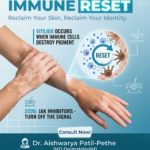Introduction: Kidney stones, or nephrolithiasis, are common and painful conditions affecting millions worldwide. In this comprehensive guide, we’ll delve into the causes, symptoms, treatment options, and prevention strategies for kidney stones.
Understanding Kidney Stones: Kidney stones are hard mineral deposits formed in the kidneys when urine becomes concentrated, allowing minerals to crystallize and stick together. They can vary in size from tiny grains to large stones, causing excruciating pain when they pass through the urinary tract.
Causes of Kidney Stones: Various factors contribute to the formation of kidney stones, including:
- Dehydration: Inadequate fluid intake leads to concentrated urine, increasing the risk of stone formation.
- Diet: High intake of oxalate-rich foods (e.g., spinach, nuts), sodium, and animal proteins can increase stone formation.
- Genetics: Family history of kidney stones predisposes individuals to develop them.
- Medical Conditions: Certain medical conditions like hyperparathyroidism, urinary tract infections, and metabolic disorders increase the risk of stone formation.
Symptoms of Kidney Stones: The symptoms of kidney stones vary depending on their size and location. Common signs include:
- Severe flank or abdominal pain
- Blood in urine (hematuria)
- Nausea and vomiting
- Urinary urgency and frequency
- Painful urination
- Fever and chills (indicating infection)
Diagnosis: Diagnosing kidney stones involves a combination of medical history, physical examination, and diagnostic tests such as:
- Urinalysis: Detects blood, crystals, and signs of infection in urine.
- Imaging Tests: X-rays, CT scans, and ultrasound help visualize the stones and determine their size and location.
- Blood Tests: Measure levels of calcium, uric acid, and other substances associated with stone formation.
Treatment Options: Treatment for kidney stones depends on factors like stone size, location, symptoms, and patient health. Options include:
- Pain Management: Nonsteroidal anti-inflammatory drugs (NSAIDs) or opioids alleviate pain during stone passage.
- Hydration: Drinking plenty of fluids helps flush out stones and prevent their formation.
- Medications: Certain medications can help dissolve or prevent specific types of stones.
- Extracorporeal Shock Wave Lithotripsy (ESWL): Uses shock waves to break large stones into smaller pieces for easier passage.
- Ureteroscopy: Involves passing a thin scope through the urethra and bladder to remove or break up stones in the ureter or kidney.
- Percutaneous Nephrolithotomy (PCNL): Surgical procedure to remove large stones from the kidney through a small incision in the back.
- Lifestyle Changes: Dietary modifications, such as reducing sodium and oxalate intake, and increasing fluid consumption, can help prevent stone recurrence.
Prevention Strategies: To reduce the risk of kidney stones, individuals can adopt the following preventive measures:
- Stay Hydrated: Drink plenty of water throughout the day to maintain urine dilution and prevent stone formation.
- Dietary Modifications: Limit intake of oxalate-rich foods, sodium, and animal proteins while increasing consumption of fruits, vegetables, and calcium-rich foods.
- Maintain a Healthy Weight: Obesity increases the risk of stone formation, so aim for a healthy weight through diet and exercise.
- Monitor Medical Conditions: Manage underlying medical conditions like high blood pressure and diabetes to reduce the risk of stone formation.
- Regular Follow-up: Individuals with a history of kidney stones should undergo regular follow-up evaluations and adhere to prescribed treatment plans to prevent recurrence.
Conclusion: Kidney stones can cause significant pain and discomfort, but with proper understanding, treatment, and prevention strategies, individuals can manage and prevent their recurrence effectively. By staying hydrated, adopting a healthy diet, and seeking medical advice when needed, individuals can minimize the impact of kidney stones on their health and well-being.#besthospital #pcmc #pune #medicalservices #kidneystone #nephrolithiasis #lithotripsy #cystone #kidneystonetreatment #urolithiasis #kidneystonepain #kidneystonesurgery #kidneystonepainrelief #kidneystoneremoval #kidneystonepainarea #reasonforkidneystone #mutkhada #generalsurgeon













